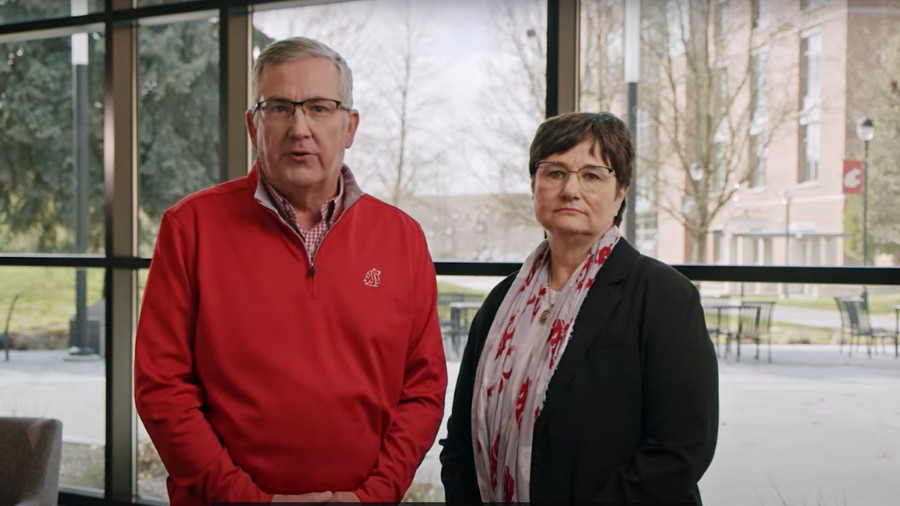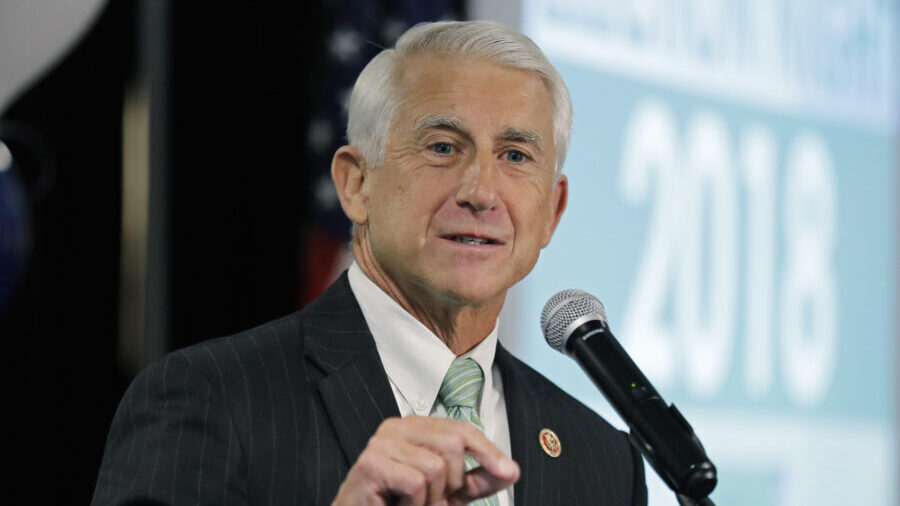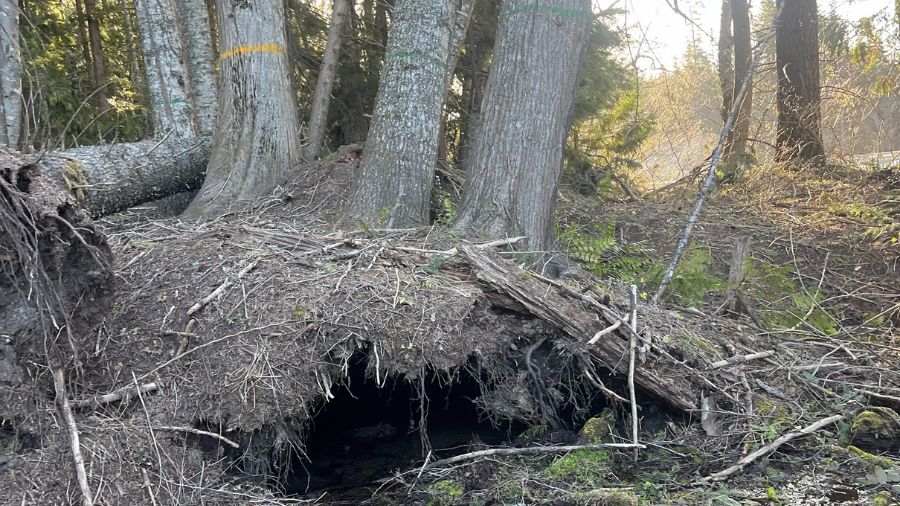Washington shutters pot businesses due to old pesticide
Apr 7, 2023, 1:43 PM | Updated: 6:48 pm

(AP Photo/Charlie Riedel, File)
(AP Photo/Charlie Riedel, File)
SEATTLE (AP) — Cannabis regulators have halted operations at several outdoor pot farms and processing facilities on a stretch of former fruit orchards in north-central Washington state after testing found high levels of chemicals related to a dangerous pesticide used decades ago.
The sweeping action announced Thursday night by the state Liquor and Cannabis Board renewed concerns about pesticides in marijuana and put dozens of people at least temporarily out of work just as they were preparing for spring planting.
“We are very concerned about the jobs and businesses, but we felt we needed to get a message out to our licensees and to take action for public safety,” said board spokesperson Brian Smith.
Over the last several months, officials collected samples from grow operations and processors along a nearly 5-mile (8-kilometer) stretch of the Okanogan River north of Brewster, a region of former orchards where fruit growers used the cancer-causing pesticide DDT before the U.S. banned it in 1972.
Marijuana growers in the area are now dealing with the legacy of soil contamination at the orchards. The results of tests at seven licensees showed high levels of DDE, a chemical that remains when DDT breaks down, the board said. Regulators decided to issue “administrative holds” on 16 producer licenses and two processing licenses in the area, forcing them to cease operations until further notice.
It wasn’t clear how many businesses were affected, because each one can hold multiple licenses.
One of the businesses, large-scale grower Walden Cannabis, advertises its cannabis as “sustainably sungrown” and “pesticide-free,” but its plants apparently absorbed contaminants from the soil which then wound up in its products. CEO Anders Taylor said he was stunned by the board’s action because it had not provided him test results or warned him that the administrative hold was coming.
He called it “completely arbitrary” and said he was trying to figure out if he would have to lay off his employees.
“Orchards used DDT for a generation, and that caused widespread contamination throughout the Pacific Northwest and the whole country, really,” Taylor said. “I’m still trying to process what this means.”
Taylor said there are seven licensed grow operations on his property as well as processing operations, with roughly 50 workers in all.
According to the U.S. Centers for Disease Control and Prevention, studies have shown that women with high amounts of DDE in their blood were more likely to give birth prematurely or to have a baby with a wheeze.
However, studies have focused on ingestion of the chemical, such as by eating fruit contaminated with pesticide residue; less is known about the effects of inhaling DDE.
Much of the marijuana grown in the area was sold wholesale to other processors. The Liquor Control Board said it is working with the growers and processors to identify which products the tainted cannabis wound up in so they can be tested off the shelf. Officials also asked affected companies to issue recalls.
Cannabis is known for its strong ability to remove contaminants from soil, and it has been studied for use in environmental cleanup. The levels of contaminants can be especially high in marijuana extracts and concentrates.
Due to marijuana’s illegal status under federal law, states have largely come up with their own rules about pesticide testing for their cannabis markets, said Gillian Schauer, executive director of the Cannabis Regulators Association, which includes cannabis officials from 35 U.S. states and territories.
There is wide variety among the states about which pesticides are regulated and what their tolerance levels are; it was unknown how many require testing for legacy pesticides or their components, such as DDE.
Regulators in Vermont early this year issued an advisory about widely available products possibly being tainted with an unapproved pesticide.
Over the years, Washington has halted the operations or destroyed product in dozens of cases where cannabis tested above accepted levels for pesticides, but those have involved the recent spraying of unapproved pesticides. This is believed to be the first time the Liquor and Cannabis Board has issued an administrative hold related to the legacy use of pesticides, and it is the first time it has issued a hold covering an entire geographic area rather than an isolated business, the board said in an email.
Washington was one of the first two states, along with Colorado, to legalize the use and sale of cannabis by adults in 2012.
Washington’s Liquor and Cannabis Board has long conducted random tests for pesticides on products, including DDE, but they did not require producers to send in samples to state-certified labs for mandatory pesticide testing until last year. Washington was the only state with legal medical and recreational marijuana that had not already done so.
Under Washington’s testing requirements, samples sent in by businesses are screened for 59 pesticides. For now, DDE is not one of them, but the board said it would begin making rules to require testing for DDE and a related compound, DDD, in cannabis products — though what form that testing might take and whether it would be required of all growers and processors was not clear.
Washington has also never required soil testing for outdoor marijuana farms. Jeremy Moberg, a licensed marijuana grower who owns CannaSol Farms in Okanogan County, north of the area targeted by regulators Thursday, said he nevertheless tested the soil at the former alfalfa farm he bought for his operation to make sure it was clean.
“I did due diligence, because I knew there was lots of toxic ground in this county due to the historical application of pesticides,” Moberg said. “People who did their due diligence did not buy land on old orchards.”












